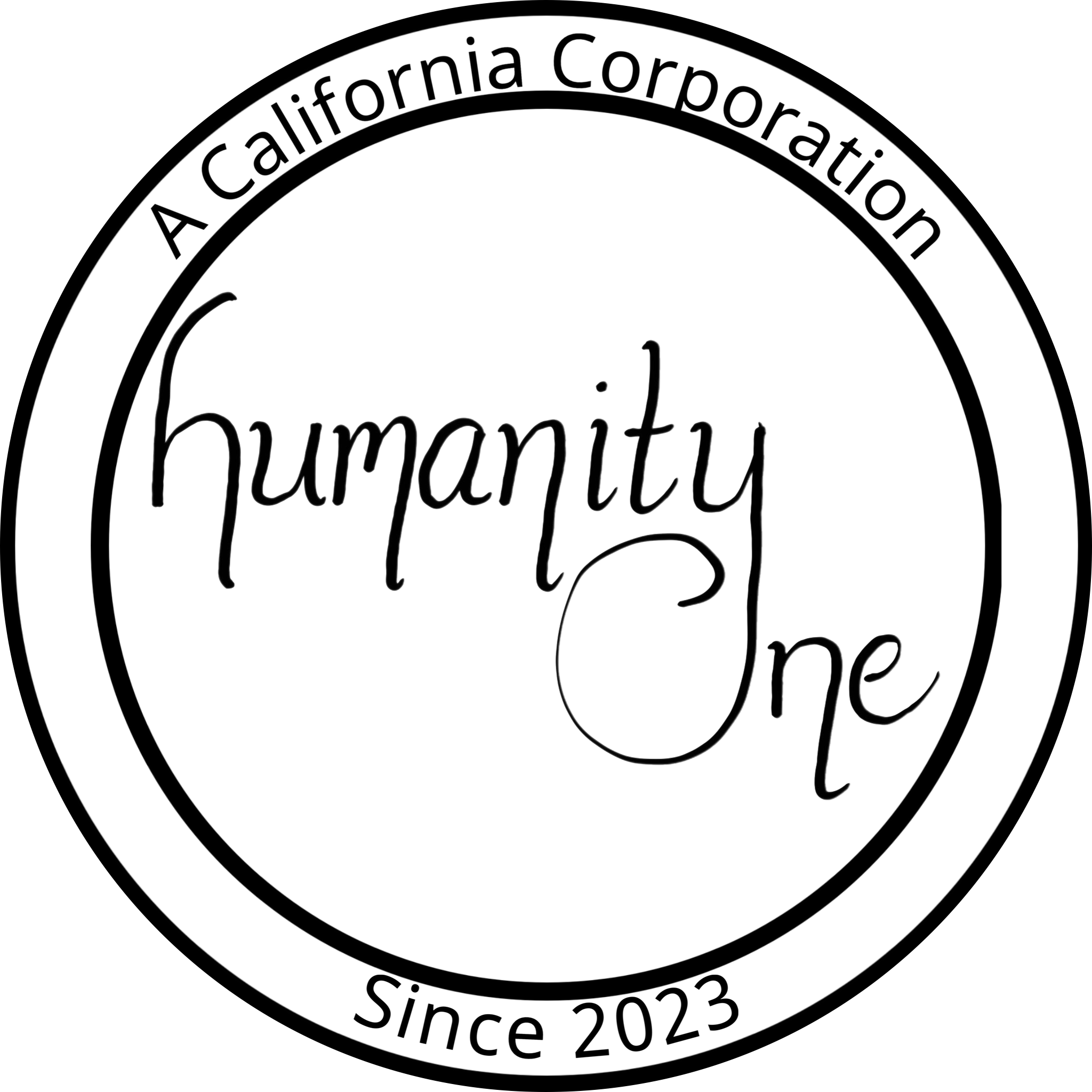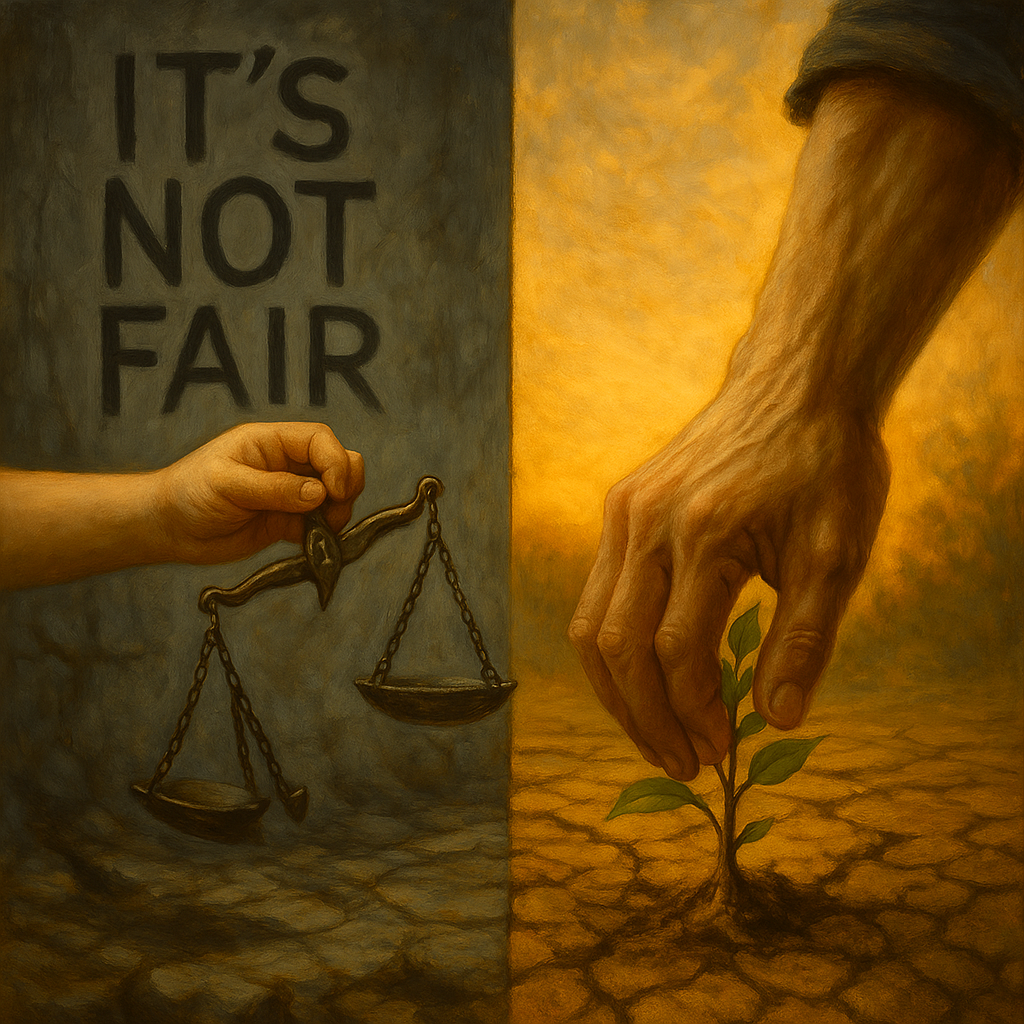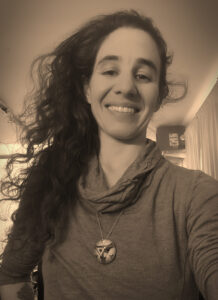Let’s start here:
Life is not fair.
And the sooner we stop expecting it to be, the clearer everything gets.
I don’t say that lightly.
I’m not telling you to give up or stop caring.
I’m saying that clinging to the fantasy of fairness—
the idea that good things happen to good people,
that effort always brings reward,
that justice is some automatic setting baked into the universe—
distorts the way we see.
It makes us bitter when things don’t work out.
It makes us question our worth when someone else wins.
It makes us resentful of reality itself.
Fairness Isn’t Built Into the System
Here’s the truth: fairness is not built into the system.
The rain falls on the righteous and the wicked.
Babies die. Dictators thrive.
The hardest-working person in the room gets laid off.
The kindest soul you know dies young.
It’s not fair.
And it never was.
But fairness—real fairness—was never promised.
What was promised, if anything, was struggle.
Was choice.
Was the sacred burden of being human in a chaotic world.
The Fantasy of Fairness Breeds Corruption
And yet, despite every piece of evidence to the contrary,
we keep building whole ideologies on this imagined fairness.
We believe that fairness is owed.
And from that belief comes rot:
We start to treat inequality as injustice.
We confuse success with theft.
We assume that suffering is proof of virtue.
And that power—any power—is inherently corrupt.
We stop looking at cause.
We stop looking at character.
We start looking only at outcomes—
and we call anything unequal "oppression."
It’s a broken lens.
What History Really Teaches About Equality
Walter Scheidel, in The Great Leveler, laid it bare:
“Throughout history, the only forces that have significantly reduced inequality are violent shocks—war, revolution, collapse, plague.”
Equality doesn’t emerge from kindness.
It comes from destruction.
And if we pretend otherwise, if we treat inequality as a moral failing rather than a structural condition of life itself, we start to justify destruction in the name of fairness.
We start to think it’s righteous to burn things down.
That’s how we get movements more interested in leveling than lifting.
That’s how we get policies that sacrifice excellence for equity.
That’s how we get mobs tearing down merit in the name of justice.
That’s how we get slogans that excuse terror, and silence truth.
All of it rooted in the fantasy that life was supposed to be fair.
Thomas Sowell on the Cost of Fair-Sounding Lies
Thomas Sowell said it clearly:
“Much of the social history of the Western world over the past three decades has involved replacing what worked with what sounded good.”
And what sounds good? Is fairness.
What works? Is truth. Responsibility. Discipline. Judgment.
Not judgment in the shaming sense—
but the kind that weighs carefully.
That asks: what’s true?
Not what feels good to believe?
The Torah Doesn’t Promise Fairness—It Commands Justice
The Torah never once says the world is fair.
It says the world is broken.
And we are called to meet it—not with fantasy, but with fidelity.
We are told to do justice.
To pursue it.
Not to wait for it.
Not to demand it from the sky.
To create it in the grit of daily choices.
Even when it costs.
Especially when it costs.
That’s what separates justice from fairness.
Fairness wants balance. Justice wants right.
Fairness is a child crying out, “It’s not equal.”
Justice is an adult asking, “What’s required of me?”
Let Go of the Myth. Choose Clarity.
So maybe this is the shift:
Let’s stop measuring life by what we think we deserve.
Let’s measure it by what we offer.
What we protect.
What we build.
What we refuse to lie about.
Let go of the myth of fairness.
Not to become cynical— but to become clear.
Because clarity is what allows you to act.
To respond.
To tell the truth even when it doesn’t benefit you.
To honor effort even when the outcomes aren’t even.
To fight for justice in a world that may never be fair.
And that— that is something worth living for.
A Call to Rise
So let’s stop looking at the world through a child's cry of “It’s not fair”—
and start walking through it with grown hands, open eyes, and a strong spine.
Let’s teach our kids the difference between wanting the world to feel right,
and doing the hard work of making it more just.
Let’s be the ones who stop expecting a payout for goodness— and still choose to be good.
Let’s stop worshiping balance— and start building meaning.
Because the work is not to even the scales.
The work is to rise despite them.
And the people who do that?
They’re the ones who change things.
Not because they were treated fairly—
but because they stopped waiting to be.
Amen.


